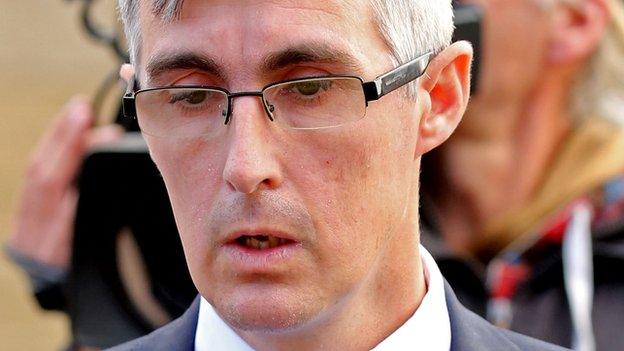Child abuse search warrants 'refused on age of information'
- Published
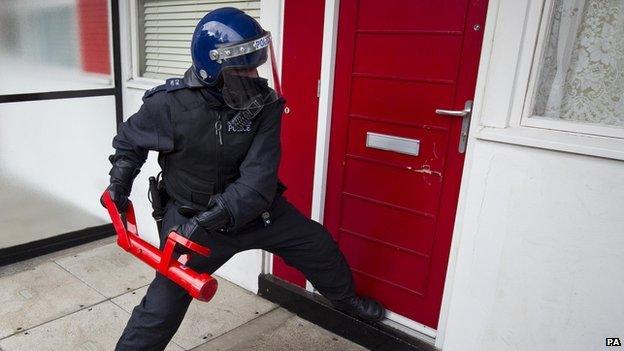
A number of searches have been carried out in relation to Project Spade
Delays in a police force receiving details on child abuse suspects from the UK agency tackling such abuse online, has led to search warrants being refused, it has emerged.
Bedfordshire Police said it tried to search homes as part of the global child exploitation sting Project Spade, external.
But magistrates refused permission, saying the 17-month delay meant the information was too old, police said.
Former child protection head Jim Gamble called it "ridiculous".
The Judicial Office refused to comment.
Toronto Police in Canada gave the Child Exploitation and Online Protection Centre (CEOP) details about 2,345 UK suspects in July 2012 after they were caught buying suspect videos online.
'Foolhardy and risky'
But the images were graded as the lowest risk and were not passed from CEOP onto local police forces for more than a year.
That decision is currently the subject of an investigation by the Independent Police Complaints Commission (IPCC).
Since then high profile abusers have emerged from these suspects, including a Cambridge doctor who preyed on terminally ill children and a Southend teacher who filmed his pupils undressing.
The BBC has learned 153 suspects from Project Spade come from the East of England, according to figures from seven out of eight of the region's police forces.
In Bedfordshire three warrants were refused "due to the age of the intelligence and the timescale difference of when the force received the information", police said.
Hertfordshire Police said five cases had not progressed "due to the age of offences and lack of supporting evidence", but it has yet to say whether it was refused search warrants.
Jim Gamble, who ran CEOP between 2006 and 2010, said magistrates' decisions to refuse warrants apparently on the basis of the time delay , were "almost unbelievable" and "ridiculous".
"There's no denying there was a huge error at CEOP, in part due to the huge pressure that staff there are under," he said.
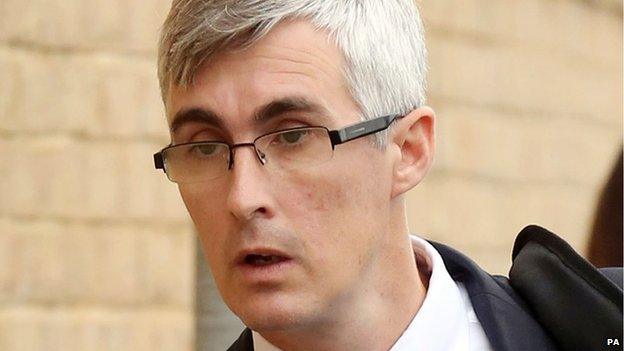
Paedophile doctor Myles Bradbury emerged from a list of "low risk" suspects

When would a magistrate refuse a warrant?
Paul Allen, a magistrate from Norfolk, said in many cases search warrants are refused because the magistrate has either not been given enough information or the cases are too old.
"The older it is, the less likely magistrates are to grant it," he said.
"For example, if it was a drugs case and officers came to me requesting a warrant a month later, it's very likely the drugs would no longer be at the house.
"Magistrates are quite within their rights not to grant a warrant unless further information shows that what they are looking for is going to be in the house.

"But it's foolhardy and risky for magistrates to ignore cases on the basis of them going stale.
"Experience shows it is never just once that people offend, they gravitate from online viewing to offline doing."
Regarding the Bedfordshire warrants, he said the force should "seriously revisit and seek alternatives if possible".
Bedfordshire Police has declined to comment further.
A spokesman for the Judicial Office, part of the Courts and Tribunals Judiciary, said it does not comment on individual cases. Thames Valley Police was asked how many suspects from the CEOP information were within its force area and what actions were taken, but did not provide the BBC with the information.
- Published1 October 2014
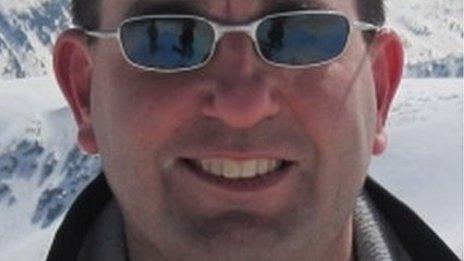
- Published30 September 2014

- Published19 September 2014
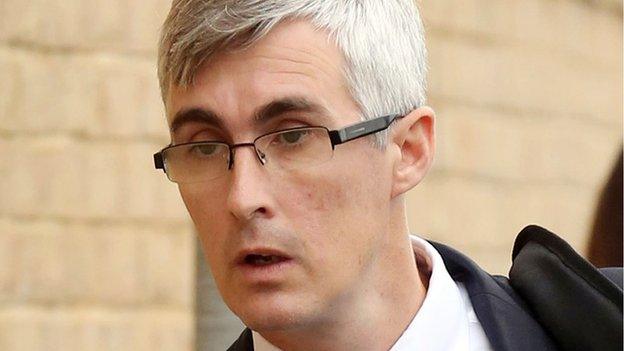
- Published15 September 2014
